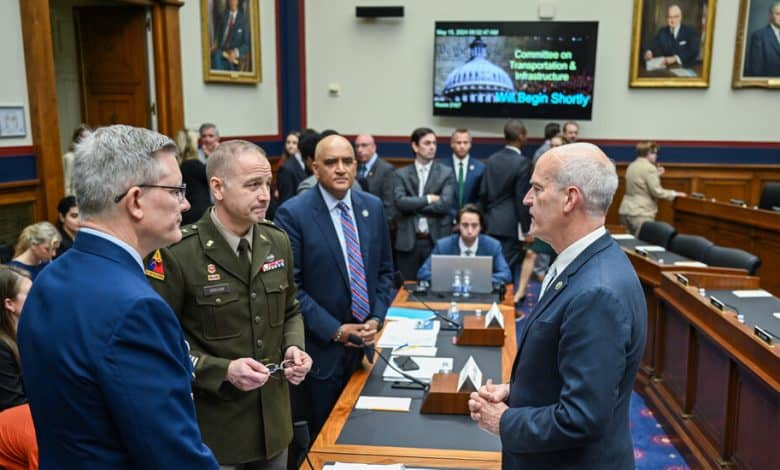U.S. Bridges Face ‘Increased Risks’ From Large Ships, Coast Guard Says

The much larger ships navigating U.S. ports have raised the risk of deadly crashes, requiring a fresh look at bridges and other key infrastructure that may need enhanced protections, a U.S. Coast Guard official said on Wednesday.
The official, Vice Adm. Peter Gautier, told a congressional committee that action was needed even before the completion of investigations into the cargo ship crash in March that knocked down the Francis Scott Key Bridge in Baltimore, killing six people.
“It is time to more broadly understand these risks,” Mr. Gautier told the House transportation and infrastructure committee, which is examining the federal response to the crash. He said the Coast Guard would be starting a nationwide review to examine vulnerabilities and propose plans to reduce the risk of disastrous accidents.
Jennifer Homendy, the chair of the National Transportation Safety Board, said during the hearing that states and other bridge operators should be evaluating the types of vessels traveling through their waterways, especially near older bridges. While her agency expects to take about 18 months to produce a final report on the Baltimore disaster, she said officials might issue urgent safety recommendations even sooner.
N.T.S.B. investigators released a preliminary report on Tuesday about crash, finding that the cargo ship Dali had experienced two electrical outages on the day before it left the port, and then suffered another round of outages as it approached the Key Bridge. The agency said it was still investigating the cause of the failures and trying to replicate the problems to understand how they occurred.
The vessel lost steering capability and crashed into a bridge pier, knocking part of the span into the water and killing six workers who had been part of a roadway maintenance crew.
